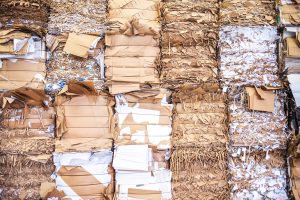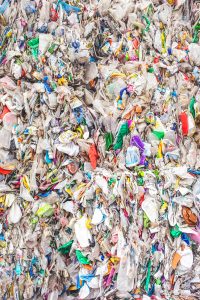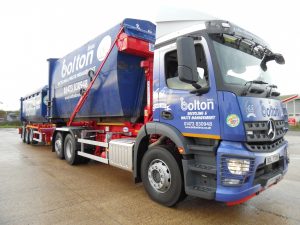Types of Waste Management
Are you a business owner who wants to understand the different types of waste management applicable for the different types of waste that your business might produce?
Waste — one word, but which encompasses a whole range of different materials, and in turn, disposal processes. It can be a minefield – which waste goes to landfill, which can be recycled and how to manage hazardous waste?
There are various type of waste management and all these different types will require different methods of disposal and should be handled by a business with the expertise in that field.
Recycling
Solid Waste
Recycling refers to the reuse or recovery of materials that would normally be considered as waste. There are a few different methods of recycling such as: physical reprocessing, biological reprocessing, and energy recovery.
Recycling is good for the environment. It supports zero waste strategies and sustainability targets, reducing the amount of unrecoverable waste that is disposed of in landfill. Examples of solid waste that can be recycled include:
- Paper and card, including mail, newspapers and magazines
- Plastics
- Aluminium and metal cans
- Food packaging
- Glass and ceramics
- Inkjet cartridges and batteries
- Bulbs
One of the most common methods of recycling is physical reprocessing. This is the method of taking waste materials and using the material to create new products.
Organic Waste
Materials such as plants, food scraps, and paper products can also be decomposed into organic matter. The organic matter that is produced from this type of recycling can then be used for things such as agricultural uses. Usually this method of recycling is done by putting the waste materials in a dedicated container until they decompose.
Waste to Energy
The final method of recycling is waste to energy recovery. Waste to energy (WtE) process involves the conversion of non-recyclable waste items into useable heat, electricity, or fuel through a variety of processes. This type of energy is a renewable energy source as non-recyclable waste can be used repeatedly to create it.
General Waste
General waste is waste that is not hazardous, offensive, clinical or cannot be recycled. It is usually collected by local authorities or private businesses and the majority is then disposed of in landfill sites. There is a national waste strategy to reduce the amount of materials going to landfill through schemes such as reuse and recycle and education around the benefits of recycling.
General waste should always be disposed of correctly and safely. Waste is collected in black bins, placed in wheeled bins and skips to await collection. It is against the law to dispose of any hazardous waste within general waste.
Hazardous Waste
Hazardous waste includes all types of rubbish that are flammable, toxic, corrosive and reactive.
These items can harm you as well as the environment and must be disposed of correctly. Therefore, always use a reputable waste management company for proper disposal of all hazardous waste.
The four ways of disposing of hazardous waste are:
- Recycling: A few hazardous wastes can be recycled to form other products. For example, circuit boards and lead-acid batteries can bind to other pollutants and later used as pavement fillings. Chemical levels are reduced when hazardous wastes are converted to new products.
- Incineration and Destruction: Another way of disposing of hazardous waste is to destroy or incinerate them. Incineration reduces the amount of hazardous waste and can also generate energy for use in the process.
- Pyrolysis: Pyrolysis, in a very high-temperature and under inert conditions, is an excellent way to dispose of hazardous waste. This process is used to avoid the dangers of combustion and is preferable when dealing with PCBs, organic waste and pesticides.
- Disposing in a landfill: A landfill is a disposal facility where rubbish is placed in. Land treatment facilities are not landfills.
Liquid Waste
Liquid waste is commonly found both in households as well as in industries. This waste includes dirty water, organic liquids, wash water, waste detergents and even rainwater.
You should also know that liquid waste can be classified into point and non-point source waste. All manufactured liquid waste is classified as point source waste. On the other hand, natural liquid waste is classified as non-point source waste.
Conclusion:
As you can see there are many different types of waste. Make sure that you always segregate your waste into these different types to ensure proper waste removal.
Here at Bolton Bros we have built a successful recycling and processing operation out of our purpose-built recycling centres in Suffolk. Founded in 1969 we are now one of the leading and most knowledgeable recycling and waste management businesses in the area.
As one of East Anglia’s largest family owned recycling and waste management companies, the company can recycle a minimum of 95% of all recyclable materials collected. This embraces all types of paper, cardboard, plastic and scrap metal. In addition, the company also offers a full waste management service for all non-recyclable materials for Waste to Energy as well as hazardous materials
To make waste removal easy, effortless and safe, get in touch with us at Bolton Brothers. Drop us an email at enquiries@boltonbros.co.uk and we’ll be glad to help you with all of your waste management needs or call us on 01473 830948




